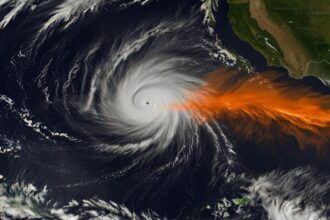John Podesta reaffirms the United States’ commitment to climate finance as the country expands oil and gas production. Amidst growing concerns, the US pledges $11 billion in climate finance under President Biden’s administration, with debates ongoing on financial pledges at the upcoming COP29 summit in Azerbaijan.
US Pledges Leadership in Climate Finance Amid Expanding Oil and Gas Production
John Podesta, the White House’s senior adviser on international climate policy, affirmed the United States’ continued role as a leader in climate finance. Speaking in an interview on Monday, Podesta outlined the US’s commitment to providing $11 billion in climate finance under President Joe Biden’s administration, although he stopped short of specifying additional sums. This comes against the backdrop of the impending COP29 UN climate summit in Azerbaijan this November, where governments will negotiate new collective goals for climate finance.
Podesta highlighted the stark contrast between Biden’s climate policies and those of his presidential rival, Donald Trump. He emphasized Biden’s dedication to reducing US carbon emissions by 50% by 2030 and achieving net-zero emissions by 2050. Despite these climate targets, Podesta defended the Biden administration’s significant expansion of gas production, especially given Europe’s need for non-Russian gas sources following the invasion of Ukraine. The US has become the world’s leading producer of oil and gas and has implemented tariffs on green goods from China, including electric vehicles, due to concerns about economic security and over-reliance on China.
Amidst this, Podesta criticized China for overproducing green goods using coal-fired power, thus increasing global emissions. He also stressed the necessity for diversified supply chains in green technology to ensure economic security.
The COP29 summit will attempt to establish a “new collective quantified goal” for climate finance, particularly from developed to developing nations. There is ongoing debate about the size and contributors to this financial pledge, with developing countries advocating for it to reach trillions rather than the current $100 billion annually. The US is pushing for broader contributions from other wealthy nations and petro-states.
Furthermore, efforts are underway to integrate climate risk into financial decision-making, with organizations like the NGFS setting climate scenarios for assessment. European regulators have led the way in conducting climate stress tests to measure the impact on financial portfolios, aiding asset managers in navigating the transition to a low-carbon economy.













